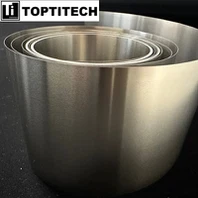 Removal of Suspended Particles: During brewing, substances such as malt, yeast, and proteins can form suspended particles. If not filtered out, these impurities can adversely affect the appearance, taste, and stability of the beer. Filtration effectively removes suspended particles, resulting in a clear and visually appealing beer.
Removal of Suspended Particles: During brewing, substances such as malt, yeast, and proteins can form suspended particles. If not filtered out, these impurities can adversely affect the appearance, taste, and stability of the beer. Filtration effectively removes suspended particles, resulting in a clear and visually appealing beer.
Control of Body and Mouthfeel: Filtration allows brewers to control the body and mouthfeel of the beer, which refers to the thickness and smoothness of the beer's texture in the mouth. By selecting appropriate filtration media and conditions, brewers can adjust the beer's mouthfeel to achieve desired characteristics, whether it be a lighter or fuller-bodied beer.
Enhancement of Beer Stability: Beer contains microorganisms and yeast that, if not filtered out, can cause spoilage or off-flavors during storage and transportation. Filtration effectively removes harmful microorganisms and yeast, thus improving the stability and shelf life of the beer.
Metal powder sintered filters play a significant role in beer filtration. These filters are made from metal powders and possess specific pore sizes and filtration capabilities. They are typically used for fine filtration and can effectively remove tiny suspended particles and microorganisms, thereby enhancing the filtration efficiency and quality of the beer.
Metal powder sintered filters offer the following advantages:
High Filtration Efficiency: Metal powder sintered filters have a uniform pore size distribution and high porosity, enabling them to effectively remove small particles and suspended matter, resulting in clearer beer.
Corrosion Resistance: Metal materials exhibit high resistance to corrosion, making them suitable for beer filtration, as they can withstand exposure to acids and alkalis.

Reusability and Cleanability: Metal powder sintered filters can be cleaned and reused, offering a longer lifespan and lower maintenance costs.
In summary, metal powder sintered filters play a crucial role in the filtration of beer by removing fine particles and microorganisms, thereby improving the quality and stability of the beer.




